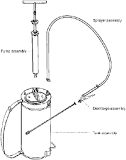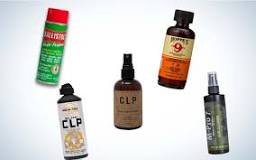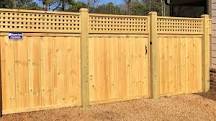So, when’s the best time to seal your driveway? The answer is late spring to early fall. This timeframe gives you the warm temperatures and dry weather that are essential for a successful seal. Sealing your driveway at the right time not only protects it but also extends its lifespan, saving you money in the long run.
Why Timing Matters
Sealing your driveway isn’t just about slapping on some sealant; it’s about doing it right. Here’s why timing is crucial:
Weather Conditions
- Temperature: Ideally, you want the temperature to be between 50°F and 90°F. If it’s too cold, the sealant won’t cure properly. Too hot? It can dry too quickly, leading to cracks.
- Rain: You also want to avoid rainy days. If rain hits right after sealing, it can wash away or damage the sealant.
Surface Preparation
- Dryness: The driveway needs to be completely dry before you apply sealant. Spring and summer usually provide the best conditions for this.
- Sunlight: A little sun helps with drying out any moisture in the surface, making it easier for the sealant to adhere.
Best Practices for Sealing
Once you’ve nailed down the timing, here are some tips to ensure you get the most out of your sealing project:
Clean Thoroughly
Before applying any sealant, make sure your driveway is clean. Sweep away debris, wash off dirt, and fill any cracks. A clean surface allows for better adhesion.
Choose Quality Sealant
Not all sealants are created equal! Look for high-quality products that suit your specific driveway material—whether it’s asphalt or concrete.
Application Technique
Apply evenly and avoid puddles. You might want to use a squeegee or roller for a smooth finish. And remember, patience is key—don’t rush it!
Summary
Sealing your driveway is a smart move, but timing is everything. Late spring to early fall is your sweet spot for optimal conditions. With proper preparation and application techniques, you’ll keep your driveway looking fresh and protected for years to come.
FAQ
How often should I seal my driveway?
Most experts recommend sealing your driveway every 1-3 years, depending on wear and tear from weather and traffic.
Can I seal my driveway myself?
Absolutely! Just make sure you have the right tools and follow the instructions carefully. It can be a DIY project if you’re up for it!
What happens if I seal my driveway at the wrong time?
If you seal when it’s too cold or wet, you risk poor adhesion and a shorter lifespan for the sealant. It might peel or crack sooner than expected.
Is it better to hire a professional?
If you’re unsure about doing it yourself or if your driveway has significant damage, hiring a pro might be worth it. They’ll have the experience and tools needed for a top-notch job.







